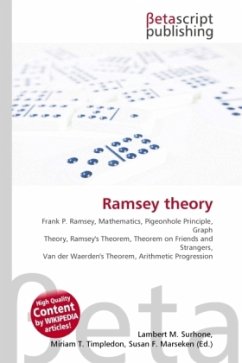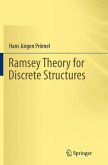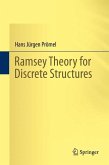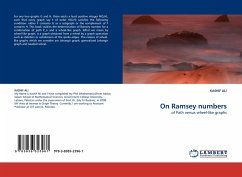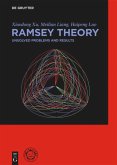High Quality Content by WIKIPEDIA articles! Ramsey theory, named after Frank P. Ramsey, is a branch of mathematics that studies the conditions under which order must appear. Problems in Ramsey theory typically ask a question of the form: "how many elements of some structure must there be to guarantee that a particular property will hold?"Suppose, for example, that we know that n pigeons have been housed in m pigeonholes. How big must n be before we can be sure that at least one pigeonhole houses at least two pigeons? The answer is the pigeonhole principle: if n m, then at least one pigeonhole will have at least two pigeons in it. Ramsey's theory generalizes this principle as explained below.
Bitte wählen Sie Ihr Anliegen aus.
Rechnungen
Retourenschein anfordern
Bestellstatus
Storno

